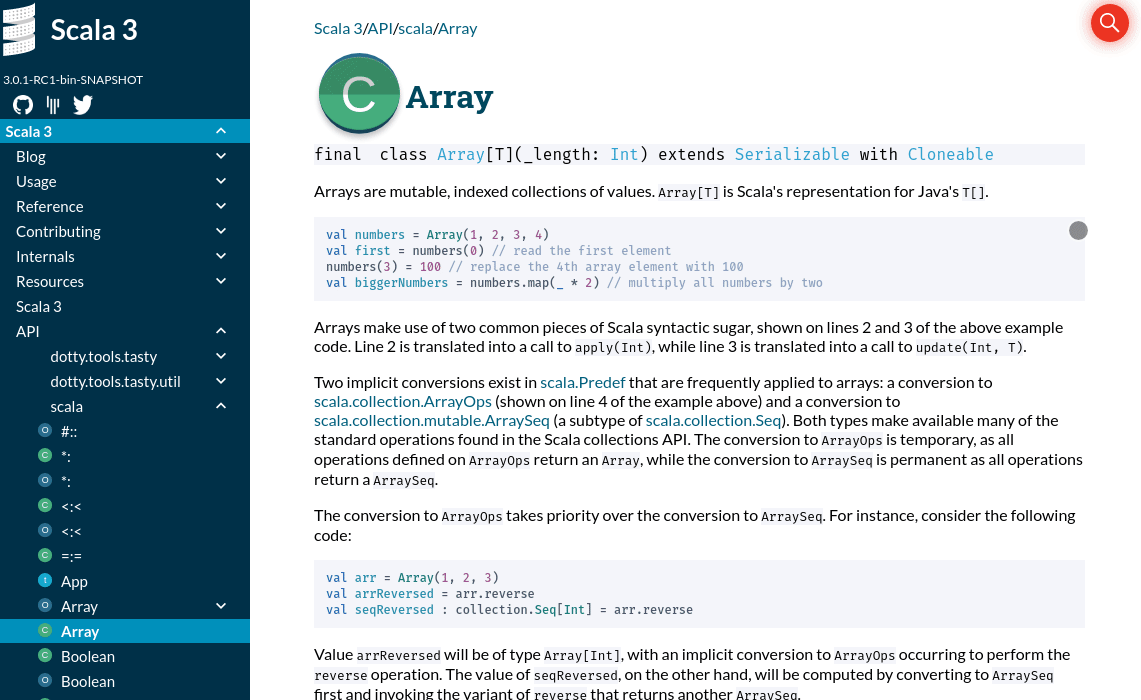Hi! As promised, I’m back with an update. Within the Virtuslab team, we’ve been working on adapting Inkuire to work with Scala 3 and scaladoc. I’m happy to say that we have a PoC ready. You can try it out here.
And here is how it looks:
Some info about how to use it:
- Inkuire works in the scaladoc searchbar- it triggers for queries with signature-like structure
- Accepted syntax is that of a curried function in Scala3
Example queries:
-
BigDecimal => Byte- toByte -
Set[Long] => Long => Boolean- contains -
Seq[Int] => (Int => Long) => Seq[Long]- map -
[A, B] => A => B => A- const
This is as I mentioned before a PoC, so there are some things that don’t work or are buggy:
- extension methods – should be easy enough, just not worth it for now, since stdlib doesn’t have a lot of them
- java classes – no tasty files for them, so will be more tricky

- implicit things – if You notice that there are no results for e.g.
String => Int, that is why - Type lambdas and HKTs – Can be a bit buggy or inaccurate
If You have any suggestions, improvements or find any bugs, issues on Inkuire repo are very much appreciated 
Let us know what You think 
